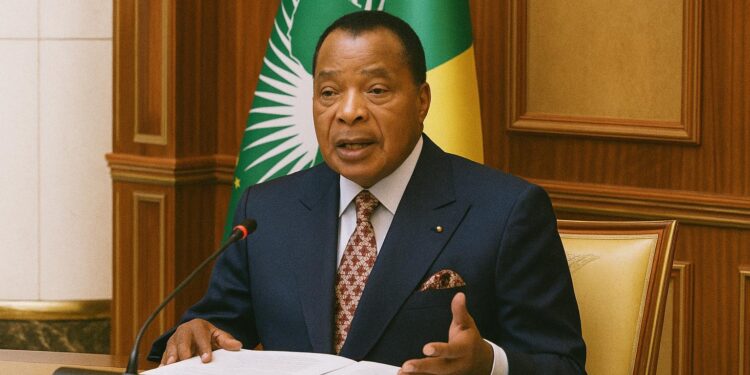Fresh confrontations jolt a fragile post-war landscape
Gunfire and rocket salvoes that rattled southern districts of Tripoli in May have once again reminded regional diplomats that the Libyan transition remains delicately poised. According to the United Nations Support Mission in Libya, mortality from the two-day stand-off between the 444th Brigade and the Stability Support Apparatus surpassed three dozen, while more than 150 civilians were displaced (UNSMIL situational brief, June 2023). The violence, although short-lived, reopened psychological wounds from the 2019-2020 siege of the capital and injected renewed urgency into multilateral attempts to lock in a lasting cease-fire.
AU emergency debate amplifies continental concern
It was against this backdrop that the African Union’s Peace and Security Council held a rare ad-hoc virtual summit on 24 July. Chaired by Uganda’s President Yoweri Museveni, the meeting featured interventions from Commission Chairperson Moussa Faki Mahamat, Libyan Presidential Council leader Mohamed El Menfi and, centrally, Congo-Brazzaville’s President Denis Sassou Nguesso in his capacity as head of the AU High-Level Committee on Libya. Delegates converged on the assessment that the incremental progress made since the October 2020 cease-fire risks unravelling if rival security coalitions continue pursuing localised power plays in a security vacuum widened by delayed elections.
Brazzaville’s discreet but persistent shuttle diplomacy
President Sassou Nguesso, drawing on two decades of mediation experience from the Central African Republic to the Great Lakes, reiterated Brazzaville’s commitment to steering Libyan factions toward an inclusive political compact. Over recent months, emissaries from his office have undertaken quiet visits to Misrata, Benghazi and Sebha, canvassing tribal elders and militia commanders on draft language for what AU officials call the Inter-Libyan Reconciliation Charter. Observers inside the Union’s Department of Political Affairs suggest that 80 percent of the charter’s clauses have already been initialled by representatives of the House of Representatives and the High State Council (internal AU memo, July 2023).
Addis-Ababa poised for symbolic signature ceremony
The forthcoming signing ceremony, pencilled in for early September at AU headquarters, is expected to fuse confidence-building measures with a sequenced roadmap toward unified executive authority and comprehensive security sector reform. Diplomats indicate that the document will call for a monitored withdrawal of foreign mercenaries, electoral legislation within six months and a joint operations command to integrate regular units and vetted armed groups. While implementation hurdles loom large, the very staging of the ceremony would project an image of African stewardship over a file long dominated by extra-continental actors.
Regional reverberations and energy-security calculus
Neighbouring states are acutely aware that renewed turmoil in Libya could spill across porous borders and disrupt nascent economic corridors. Algeria’s Sonatrach, for instance, has only recently resumed on-shore exploration in the Ghadames Basin, while Tunisia continues to rely on remittances from migrant labourers working in western Libyan construction sites. Further south, Chad and Niger view a stable Libyan south as essential to containing Sahelian insurgent flows. In this sense, the AU’s effort, underpinned by Congo’s facilitation, is interpreted in regional capitals not merely as conflict resolution but as insurance for broader continental security and energy diversification.
International partners weigh calibrated engagement
European Union officials, mindful of the renewed central Mediterranean migration uptick, have welcomed the AU initiative, though privately some express concern that parallel tracks led by the United Nations and the United States could dilute messaging coherence. Washington’s envoy Richard Norland, during a press call in June, emphasised that America’s priority is “a credible electoral timeline embraced by all sides” but added that “African efforts to foster reconciliation are indispensable.” The convergence of fora underscores growing recognition that no single diplomatic umbrella can alone corral Libya’s fragmented security architecture.
Cautious optimism tempered by conflict fatigue
Libyan civil society actors, while welcoming any step that marginalises heavy weaponry from political discourse, voice apprehension that elite pacts may overlook local grievances. To address this perception, the AU Committee has proposed rotating town-hall consultations in Sirte, Gharyan and Kufra after the Addis ceremony, a format modelled on Brazzaville’s 2017 Pool Dialogue that successfully de-escalated militia activities in southern Congo. Analysts at the Institute for Security Studies argue that replicating such a mechanism could embed the charter within community structures and thus strengthen its resilience against spoilers.
A measured path forward for an unsettled nation
Whether the Addis-Ababa signing ushers in a durable calm or becomes another shelved communiqué will hinge on enforcement guarantees and the capacity of Libyan institutions to reconcile competing mandates. Yet the AU session has at minimum signalled continental resolve to reclaim agency over one of Africa’s most persistent crises. For President Denis Sassou Nguesso, the task remains to translate diplomatic capital into verifiable milestones, a challenge he appears determined to meet with the quiet perseverance that has long defined Congo-Brazzaville’s external posture. In a region where attention spans are often as short as cease-fires, such steadiness may well prove the most valuable commodity.












































